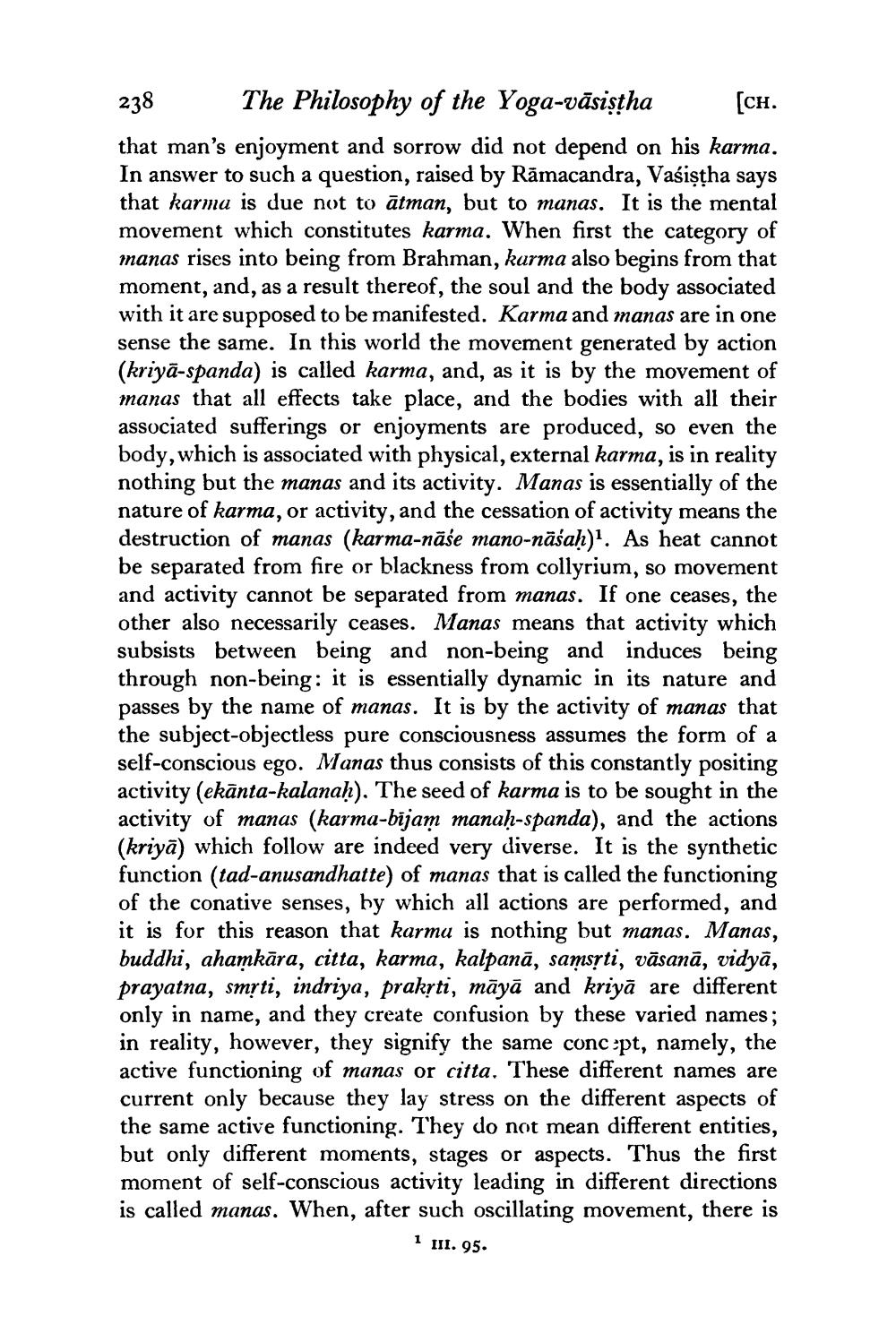________________
238
The Philosophy of the Yoga-vasistha
[CH.
that man's enjoyment and sorrow did not depend on his karma. In answer to such a question, raised by Rāmacandra, Vasistha says that karma is due not to ātman, but to manas. It is the mental movement which constitutes karma. When first the category of manas rises into being from Brahman, karma also begins from that moment, and, as a result thereof, the soul and the body associated with it are supposed to be manifested. Karma and manas are in one sense the same. In this world the movement generated by action (kriya-spanda) is called karma, and, as it is by the movement of manas that all effects take place, and the bodies with all their associated sufferings or enjoyments are produced, so even the body, which is associated with physical, external karma, is in reality nothing but the manas and its activity. Manas is essentially of the nature of karma, or activity, and the cessation of activity means the destruction of manas (karma-nāśe mano-nāśaḥ)1. As heat cannot be separated from fire or blackness from collyrium, so movement and activity cannot be separated from manas. If one ceases, the other also necessarily ceases. Manas means that activity which subsists between being and non-being and induces being through non-being: it is essentially dynamic in its nature and passes by the name of manas. It is by the activity of manas that the subject-objectless pure consciousness assumes the form of a self-conscious ego. Manas thus consists of this constantly positing activity (ekānta-kalanaḥ). The seed of karma is to be sought in the activity of manas (karma-bijam manah-spanda), and the actions (kriya) which follow are indeed very diverse. It is the synthetic function (tad-anusandhatte) of manas that is called the functioning of the conative senses, by which all actions are performed, and it is for this reason that karma is nothing but manas. Manas, buddhi, ahamkāra, citta, karma, kalpanā, samsṛti, vāsanā, vidyā, prayatna, smrti, indriya, prakṛti, māyā and kriya are different only in name, and they create confusion by these varied names; in reality, however, they signify the same concept, namely, the active functioning of manas or citta. These different names are current only because they lay stress on the different aspects of the same active functioning. They do not mean different entities, but only different moments, stages or aspects. Thus the first moment of self-conscious activity leading in different directions is called manas. When, after such oscillating movement, there is
1 III. 95.




